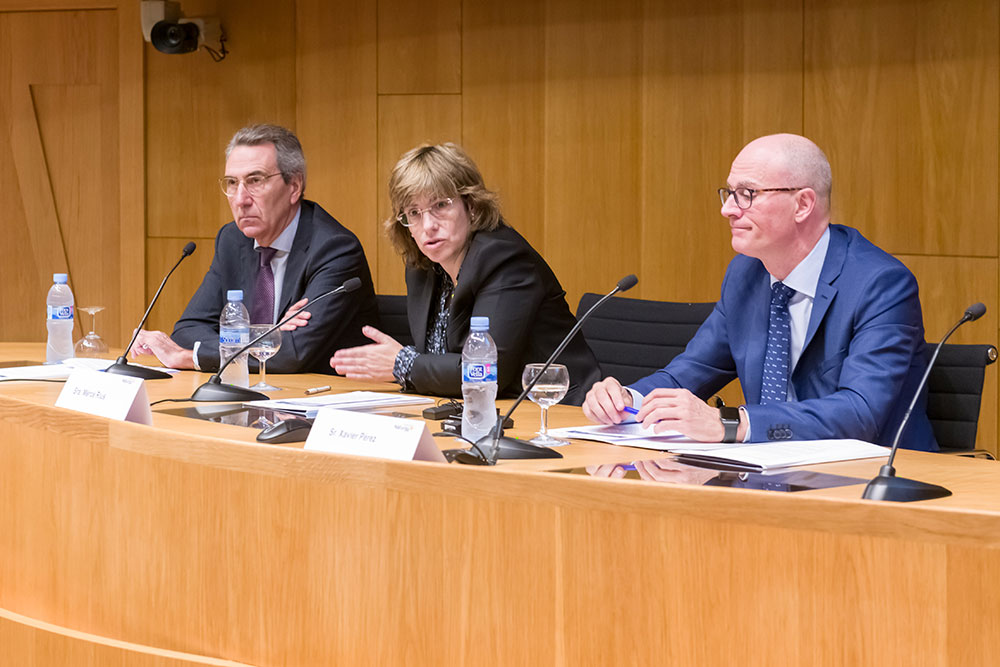Environmental labelling of vehicles and point source pollution management, basic tools for managing urban pollution
Earlier today, Barcelona played host to a training seminar organised by the Naturgy Foundation at which various experts presented the keys to designing our urban mobility of the future based on measures to reduce urban pollution and improve air quality in our cities.

In partnership with the Regional Government of Catalonia, the Naturgy Foundation and RACC organised a seminar earlier today in Barcelona focused on the environmental labelling of vehicles and urban pollution management. A dozen or so institutional, business and university experts in various fields examined the measures being used to reduce pollutant emissions and shared their own experiences, as well as experiences from other countries.
The opening session was attended by the Director-General for Environmental Quality and Climate Change of the Regional Government of Catalonia, Mercè Rius; the General Manager of RACC, Xavier Pérez; and the General Manager of the Naturgy Foundation, Martí Solà.
Mercè Rius highlighted the path taken in Catalonia to join forces in the fight against urban pollution and called for public transport to be included under the basic social policy framework. “Environmental improvements in transport can be monetised in terms of lower health care spending,” she said. She went on to stress that the Regional Government of Catalonia is working on two challenges -climate change and air quality- the solutions for which can be contradictory at times. In the case of diesel, for example, Mercè Rius said that it allows CO2 emissions to be reduced, which is good on a global level, but increases the emission of particulates, which exacerbates urban pollution; a local effect that directly impacts on people’s health. In this regard, Mercè Rius reaffirmed a commitment to electric and natural gas vehicles.
On behalf of RACC, Xavier Pérez underlined the need to work rigorously so that the public can enjoy cleaner air in urban areas while also guaranteeing mobility. Xavier Pérez called for more easy-to-apply measures, such as reinvestment of the new tax on CO2 into subsidies for renewing the oldest and therefore most-polluting vehicles on the road; or linking road tax to vehicle emissions in order to meet the principle of ‘whoever pollutes more, pays more’. He also stressed that investing in public transport and transport infrastructures is essential. “Improving the suburban railway network and enhancing park&ride schemes are other measures we should be working on,” said the General Manager of RACC.
Share